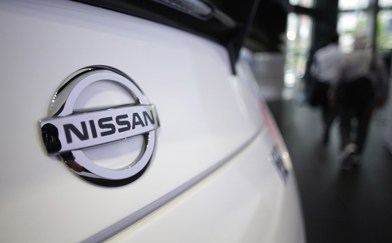Inventor Sir James Dyson is to invest $4.7 billion to develop a 'radical' range of new electric cars in Britain that will create up to 4,000 new jobs, he announced today.
The first will be launched in 2020 ready for sale to customers in 2021, he said.
Although the UK is 'in the frame' as one option to manufacture the final production model, he signalled that China is likely to be favourite for full-production.
He also confirmed the vehicle would not be a sports car and won't be cheap to buy.
The man famed for his vacuum cleaner empire stressed that he would be recruiting thousands more hi-tech staff and engineers in the UK to create and develop the new Dyson range of electric cars – that could see the present UK workforce double to around 8,000.
Sir James stressed that he was not a ‘Johnny come lately’ to the electric car market and that he had been 'pursuing his dream’ of an electric car since 1998, investing his own private money to develop an electric motor.
A top secret team of engineers recruited from the motor industry has been working on the more detailed project for two and a half years.
And Dyson are world leaders in battery technology, he stressed. His company’s vast range of vacuum cleaners and household appliances mean it is responsible for 6 per cent of the global battery market, producing 100 million battery cells each year.
Dyson has bought a former World War II airfield at Hullavington near Chippenham in Wiltshire where the first new electric car will be developed from February.
Some 400 people have been working on the top secret electric car project for the last two and half years, though today (Tuesday) is the first time that Dyson has officially confirmed it is to go ahead.
Sir James said he was spending $1.9 billion developing new battery technology, $1.9 billion on the hi-tech car itself, and $934 million on associated technology, including autonomous and 'robotic' equipment for cars.
The car will have some autonomous driving aids, but will not be fully autonomous, he said.
Two hi-tech and hi-efficiency solid-state battery systems are being developed as potential power sources for the car.
A super-efficient electric motor has already been created. Work is now progressing on the chassis and styling.
Speaking to a select group of journalists in London today ,Sir James said: 'It will be radical.
'The UK is in the frame to build it. But we like to build close to our biggest markets.
'And we see a large market for it in the Far East.'
China in particular was a booming market for electric cars, he said.
He expected the new Dyson car to dominate the market – taking on rivals such as Elon Musk's American Tesla brand but also mainstream manufacturers developing their own electric vehicles such as Jaguar Land Rover, BMW and Mercedes-Benz.
Sir James said the new Dyson electric car had been his dream since the 1990s when motor industry bosses rejected his ideas to clean up diesel cars – prompting him to switch to vacuum production instead: 'It's long been my ambition to create an electric car. It's been a passion of mine', he said.
Sir James Dyson is best known for creating some of the most innovative vacuum cleaners on the market today
Sir James – who has favoured the UK leaving the European Union - said that Brexit would not play a role in where the new car is manufactured.
If the UK is chosen then production would be on the same airfield site being used for battery and car development.
He was not going into partnership with other traditional car manufacturers and the new car is being developed in-house from a clean sheet, he stressed.
Sir James broke the news to staff in a letter to employees released on the same day after stating that the brand will 'lead the development for high value jobs in the UK'.
The correspondence to staff said: 'I wanted you to hear it directly from me: Dyson has begun work on a battery electric vehicle, due to be launched by 2020.
'We've started building an exceptional team that combines top Dyson engineers with talented individuals from the automotive industry. The team is already over 400 strong and we are recruiting aggressively. I'm committed to investing $3.7 billion on this endeavour.
'The project will grow quickly from here but at this stage we will not release any information. Competition for new technology in the automotive industry is fierce and we must do everything we can to keep the specifics of our vehicle confidential.'
Of the car itself, he said: 'It will be different. It will be radical. It's not a sports car. And it won't be a cheap car.'
He declined to speculate on price but is likely to be above £40,000 (NZ$ and Dyson is prepared to take deposits 'on faith' now.
'If this car goes anywhere it will quite quickly be the biggest around. It will dominate,' he said.
Dyson's Bid to reduce air pollution
In a letter to his 8,000 employees worldwide, Sir James explained how he had harboured his ‘passion’ to develop an electric car after his invention to reduce pollution from diesel engines – then being encouraged by Labour Government to reduce CO2 emissions – was rebuffed by the motor industry – despite being featured on Blue Peter with Anthea Turner.
He said: 'To our chagrin, nobody at the time was interested in employing our diesel exhaust capture system and we stopped the project. The industry said that ‘disposing’ of the collected soot was too much of a problem! Better to breathe it in?’
In the years since he said: ‘Throughout, it has remained my ambition to find a solution to the global problem of air pollution.
‘Some years ago, observing that automotive firms were not changing their spots, I committed the company to develop new battery technologies. I believed that electrically powered vehicles would solve the vehicle pollution problem.
‘The latest digital motors and energy storage systems power the Dyson Supersonic hair dryer and cord-free vacuum line.‘
Sir James Dyson originally designed a system in 1990 to reduce emission from diesel vehicles
Technology behind its fans, heaters and purifiers also have a spin-off effect in helping create a new Dyson car, he said.
‘At this moment, we finally have the opportunity to bring all our technologies together into a single product. Rather than filtering emissions at the exhaust pipe, today we have the ability to solve it at the source. So I wanted you to hear it directly from me: Dyson has begun work on a battery electric vehicle, due to be launched by 2020.’
He said Dyson had started to build ‘an exceptional team that combines top Dyson engineers with talented individuals from the automotive industry.’
He said: ’The team is already over 400 strong, and we are recruiting aggressively. I’m committed to investing $3.7b on this endeavour.’
He said: ‘The project will grow quickly from here but at this stage we will not release any information. Competition for new technology in the automotive industry is fierce and we must do everything we can to keep the specifics of our vehicle confidential.’
Explaining the imperative behind his next chapter he said:’In London, nearly 9,500 people die early each year due to long-term exposure to air pollution according to a study carried out by researchers at King’s College London.
‘The World Health Organisation reports “in 2012 around 7 million people died – one in eight of total global deaths – as a result of air pollution exposure”. It is our obligation to offer a solution to the world’s largest single environmental risk.’
-Daily Mail




